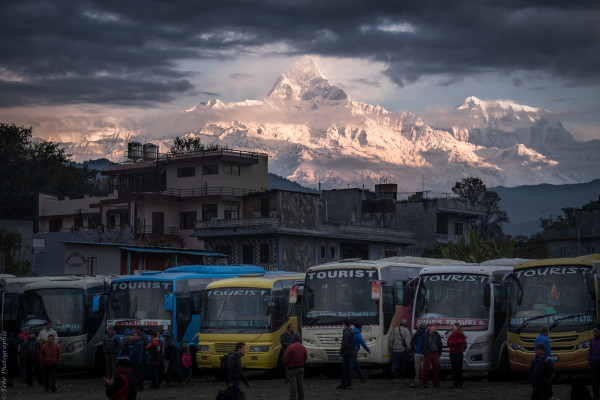Group studying Himalayan climate, agriculture wins 2015 WARF Discovery Challenge Research Symposium
Anne Sophie Daloz, a scientist at the Space Science and Engineering Center, and Tristan L’Ecuyer, a professor in the Department of Atmospheric and Oceanic Sciences, are collaborators on a new research endeavor to study Himalayan climate and agriculture. The ongoing project, led by Ritodhi Chakraborty, a graduate student in the Department of Geography, has won this year’s Discovery Challenge Research Symposium.
- Ritodhi Chakraborty
- Tristan L’Ecuyer
- Anne Sophie Daloz
Spearheaded by the Wisconsin Alumni Research Foundation (WARF), the symposium is the first of two stages in the WARF Discovery Challenge: An annual competition designed to promote cross-disciplinary collaboration and communication among young researchers on campus. The group is now eligible for stage two of the challenge, a research award competition in the fall.
Their project, “Climate and Agricultural Change at the Third Pole,” examines the impact of climate-driven changes in precipitation on small-farm agriculture in the Himalayas. The project started last year, thanks to a Sustainability Innovation in Research and Education (SIRE) award from the UW-Madison Office of Sustainability.
Complex biophysical and socioeconomic systems make the Himalayas, or Third Pole, a challenging but important region to study. The region is so-named because the ice fields of the Himalayas contain the largest reserve of freshwater outside the geographic poles. The Himalayas support the agricultural and freshwater needs of more than 2 billion people, imposing “an urgent need for better understanding the impact of climate change on this region, especially on agricultural production, which is the primary livelihood of the population,” the group explains in the symposium abstract.
“People in these regions are already having to adapt to climate change, but there have been few studies to provide information,” said Daloz.

The Himalayas, as photographed on a trip to Nepal the team took in January. Credit: Anne Sophie Daloz.
The diverse scientific backgrounds of geographer Chakraborty, who specializes in the societal issues of the Himalayas, and L’Ecuyer and Daloz, who have expertise in interpreting satellite observations and climate modeling, respectively, unite to provide a multidimensional approach for addressing these challenges.
Collaborating with local experts across the region, in Bhutan, India, and Nepal, the team first determined the accuracy of current climate models using ground-based and space-based observations of precipitation. They then used climate models to predict future changes, which showed, they reported in the abstract, “an increase in precipitation over a large part of the region, especially during the monsoon season and the season preceding the monsoon.”
Looking ahead, the researchers will apply their results to an agro-ecosystem model, to study the impact of precipitation changes on certain crops, such as fruit. To assist with this, they enlisted the help of a scientist with yet another area of expertise: Yanghui Kang, an agricultural modeling specialist in the Nelson Institute for Environmental Studies.
It is their hope that this will turn into a longer-term project, with more collaborators to focus on these interconnected research questions.
“In the future, we would like to add the social and economic impacts of precipitation changes,” said Daloz. “We are looking for collaborators in the Department of Economics or other departments that could help us with this.”
Daloz added that their involvement in the Discovery Challenge has already been a terrific start for crossing those departmental boundaries and getting the word out about their work.
“The symposium brought together researchers from all across the university. … It was great to get a bit more exposure and to meet other scientists,” she said.
The team also recently received a CPEP Seed Grant through the Nelson Institute’s Center for Climatic Research, which is awarded annually to support innovative climate research.
by Sarah Witman



